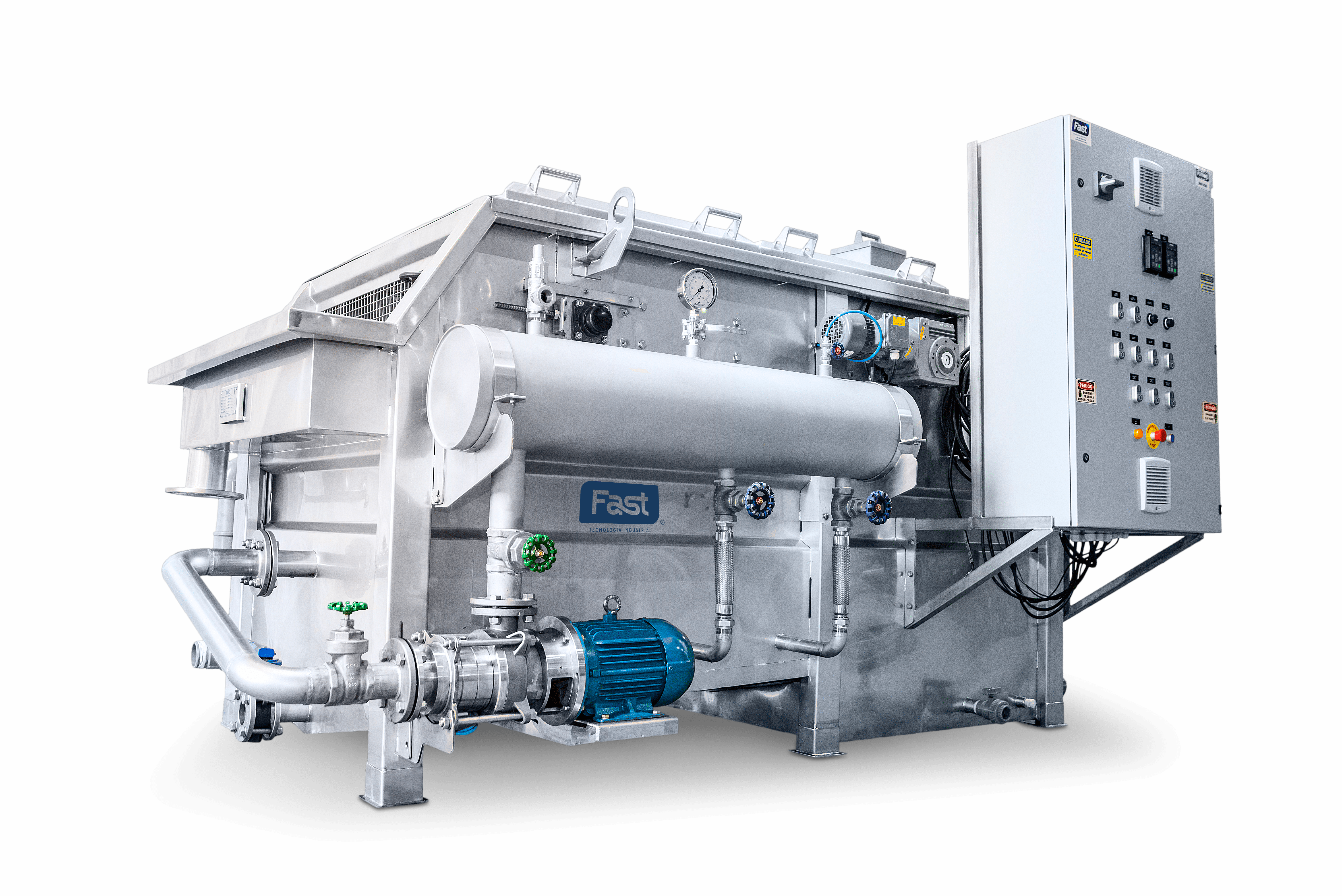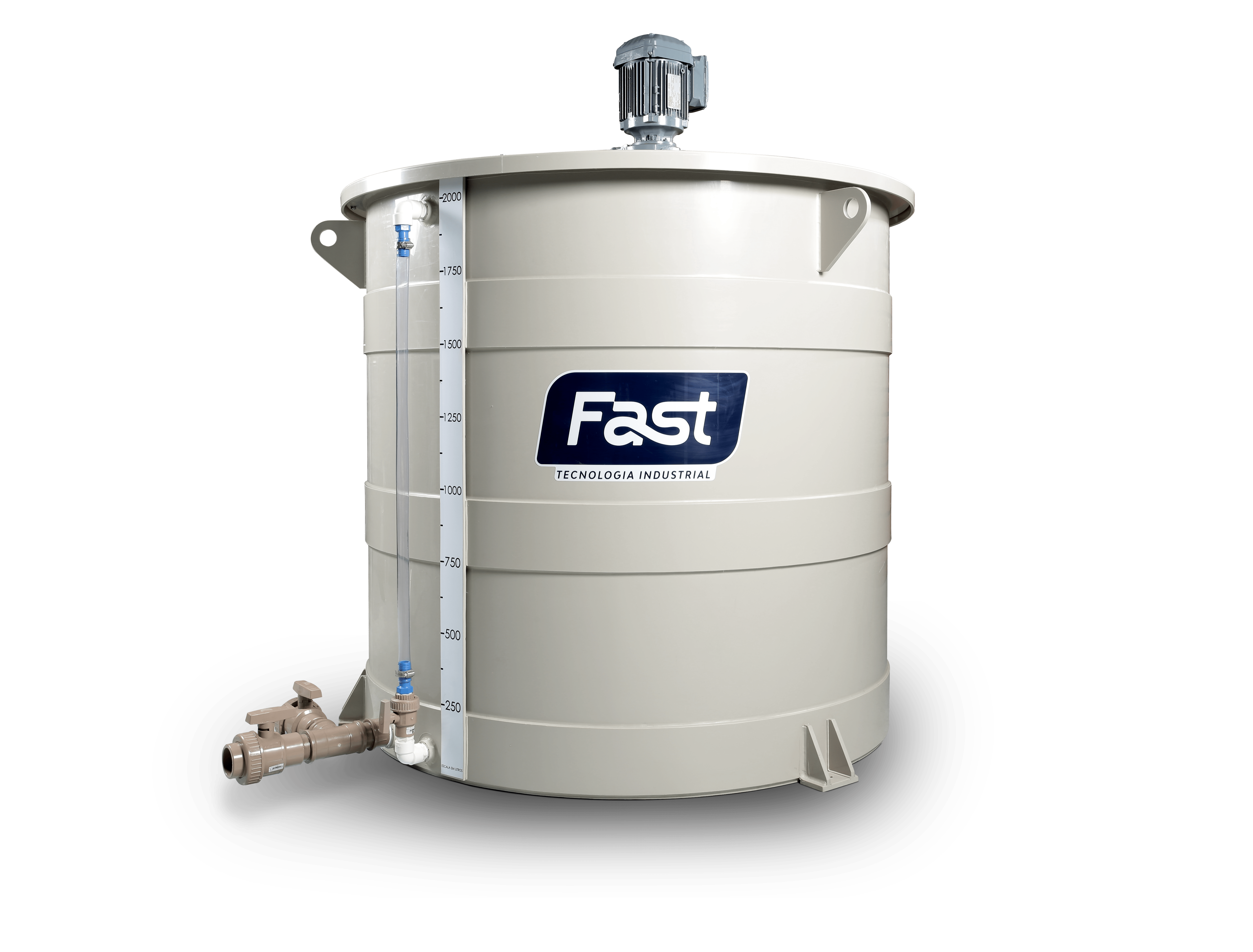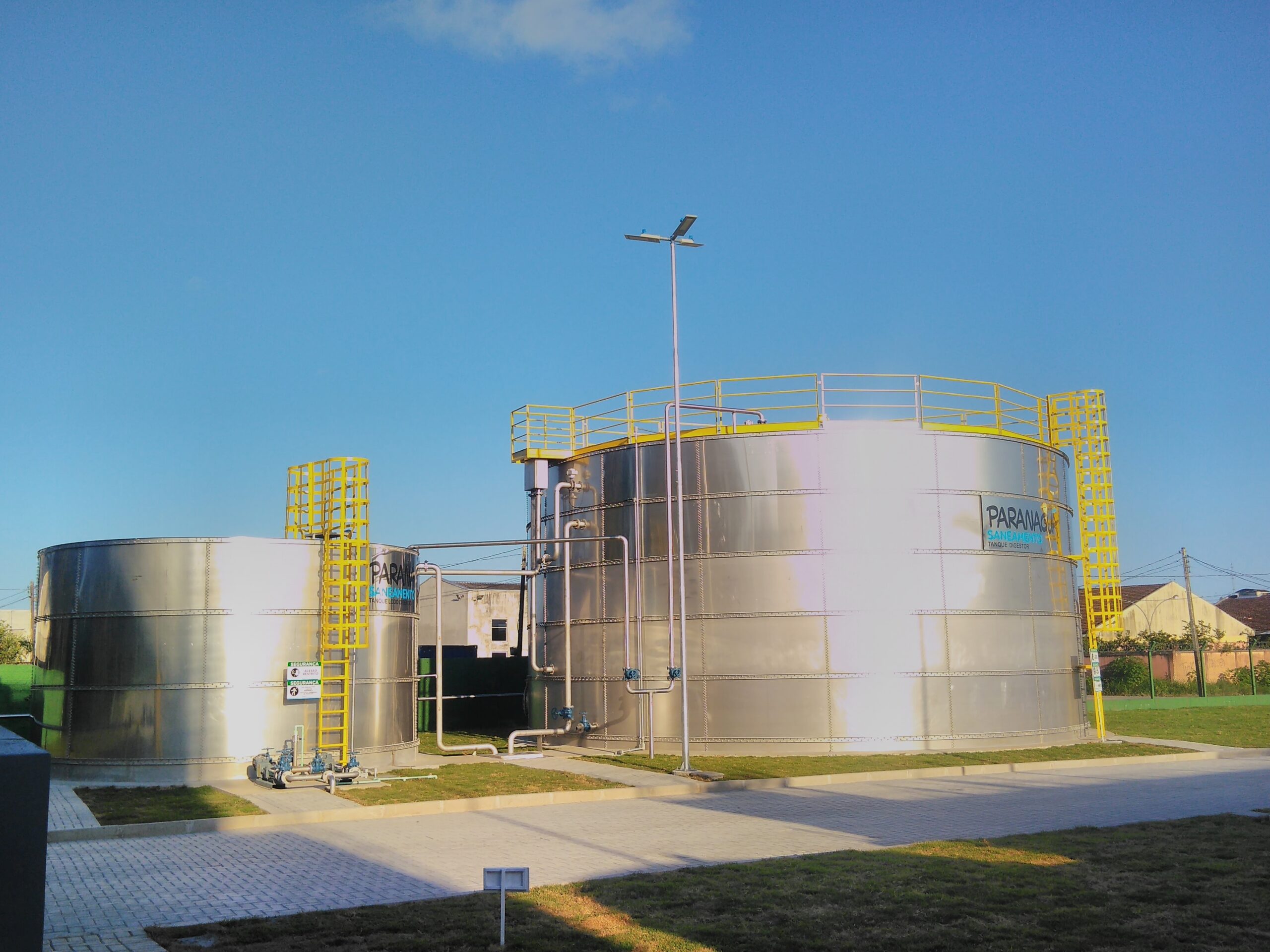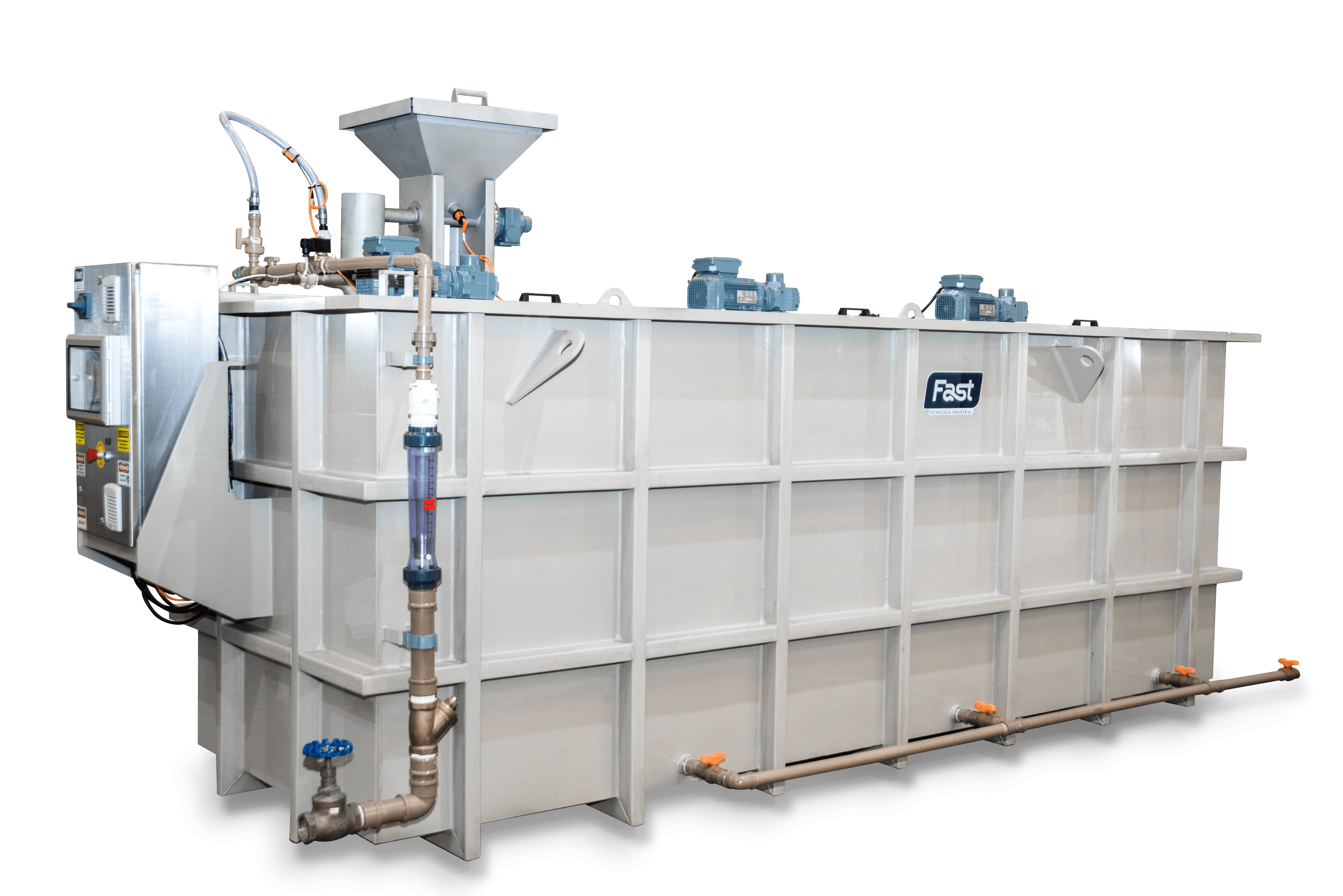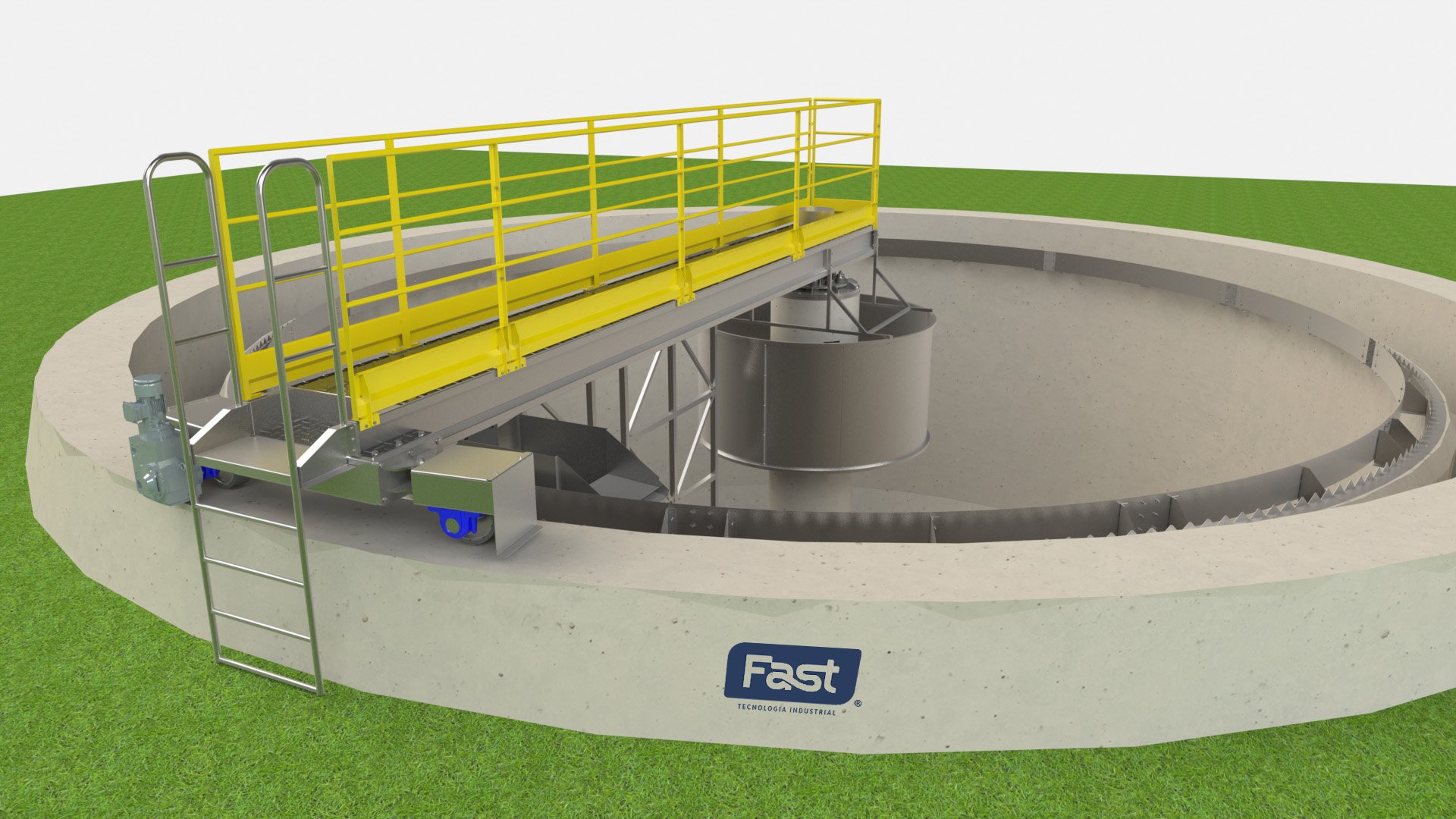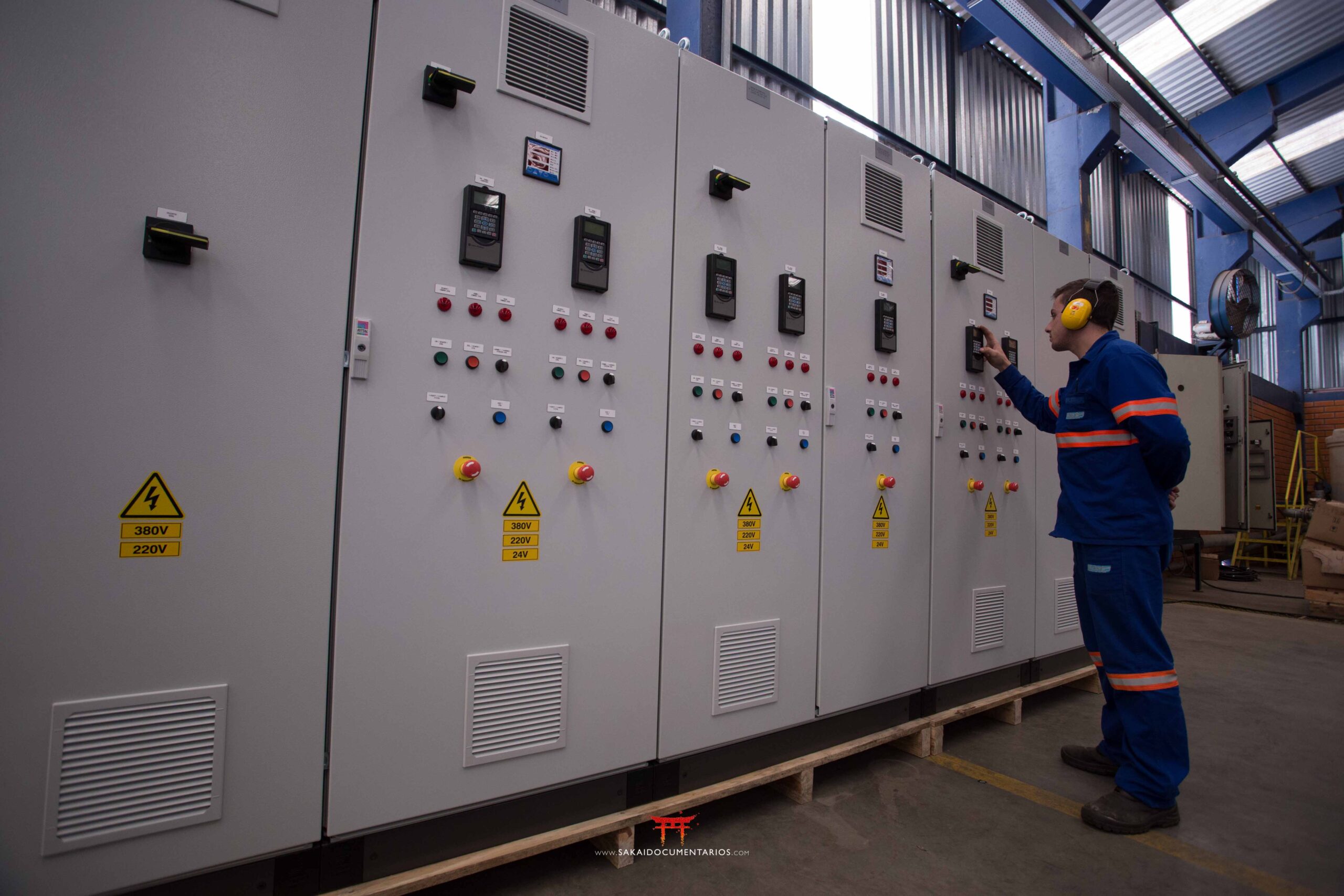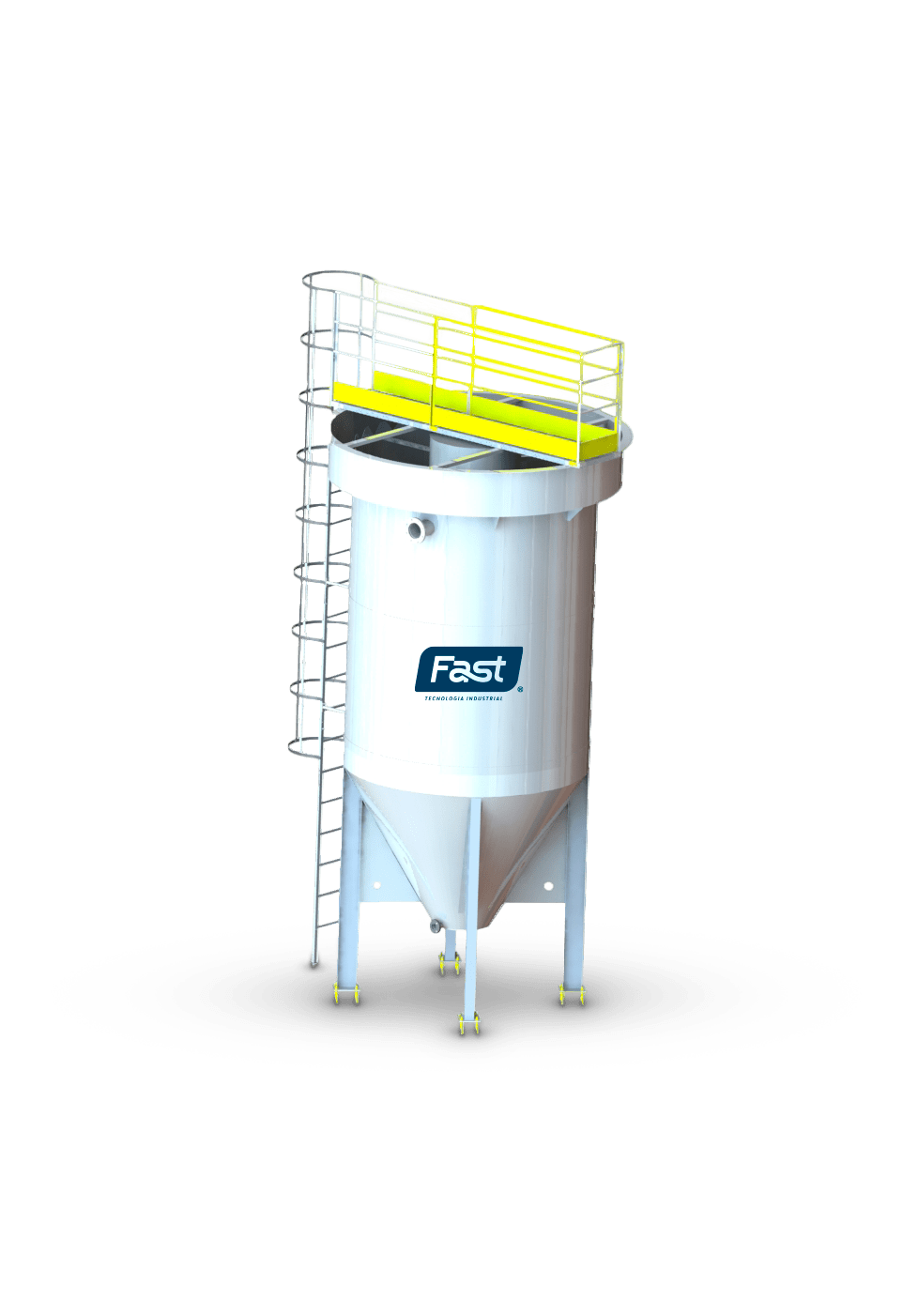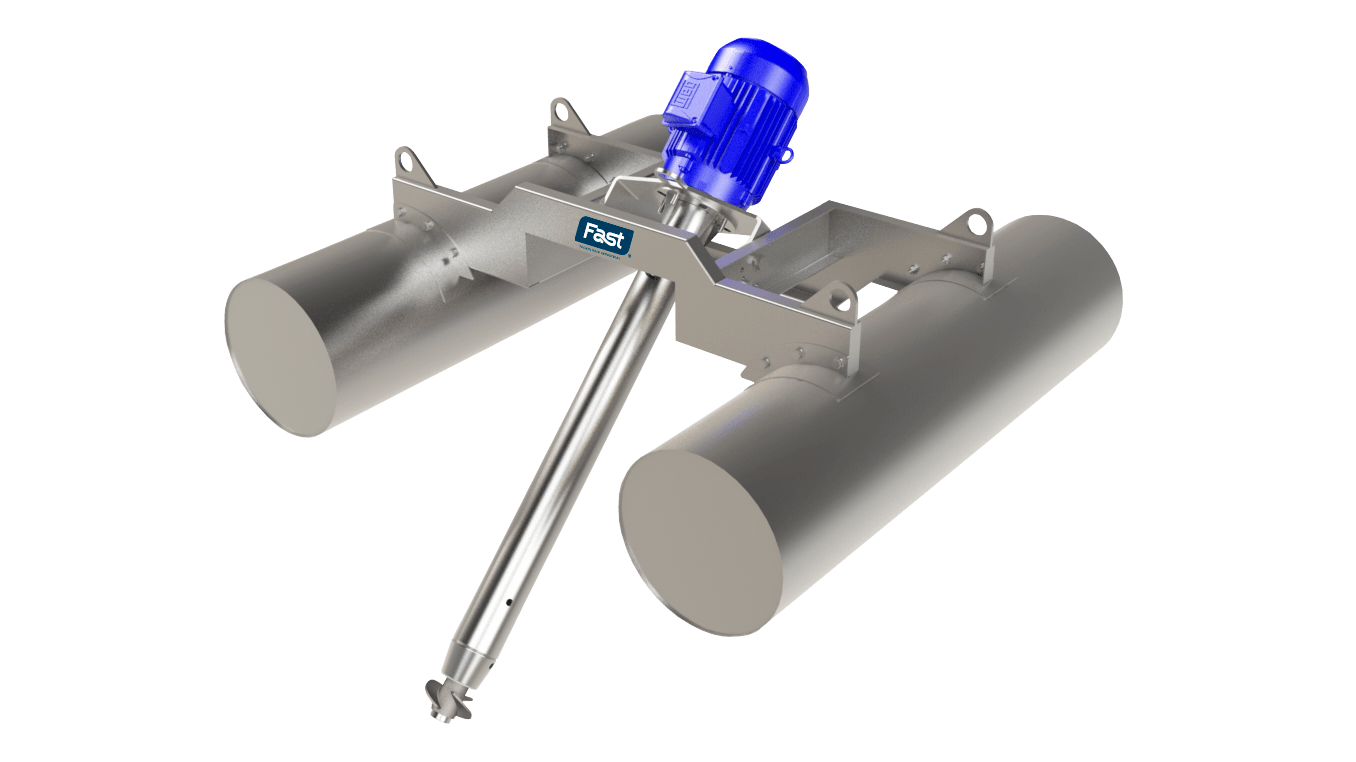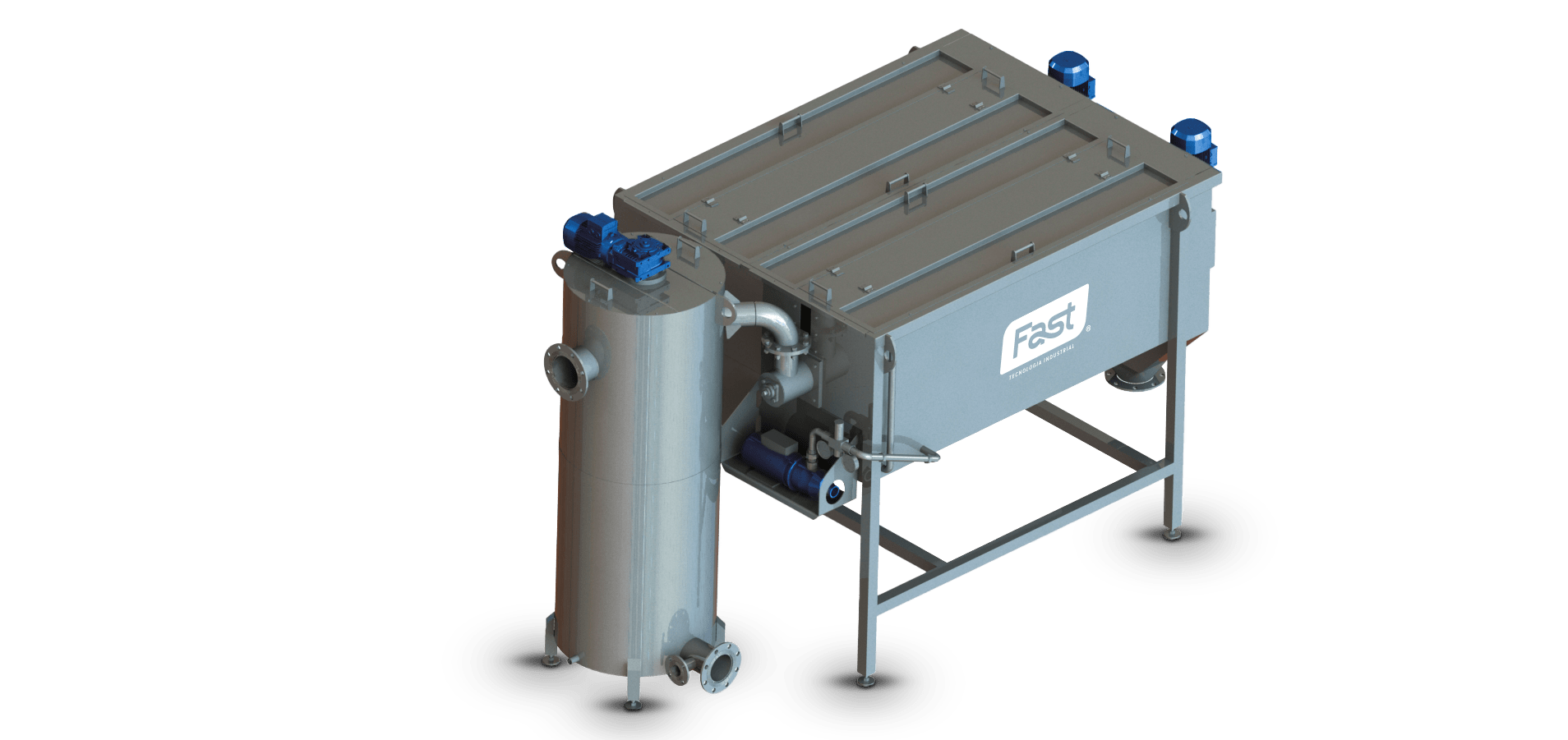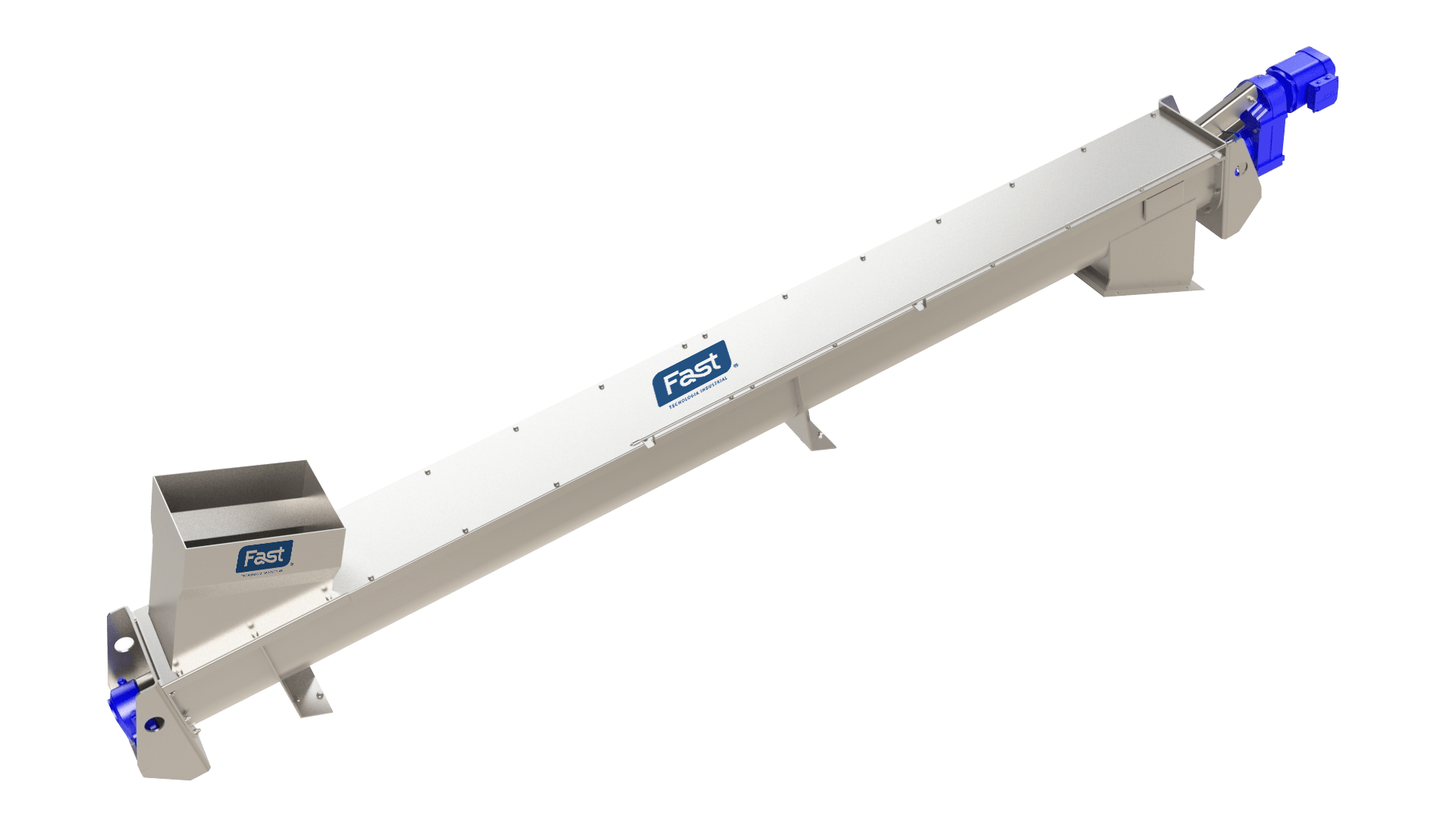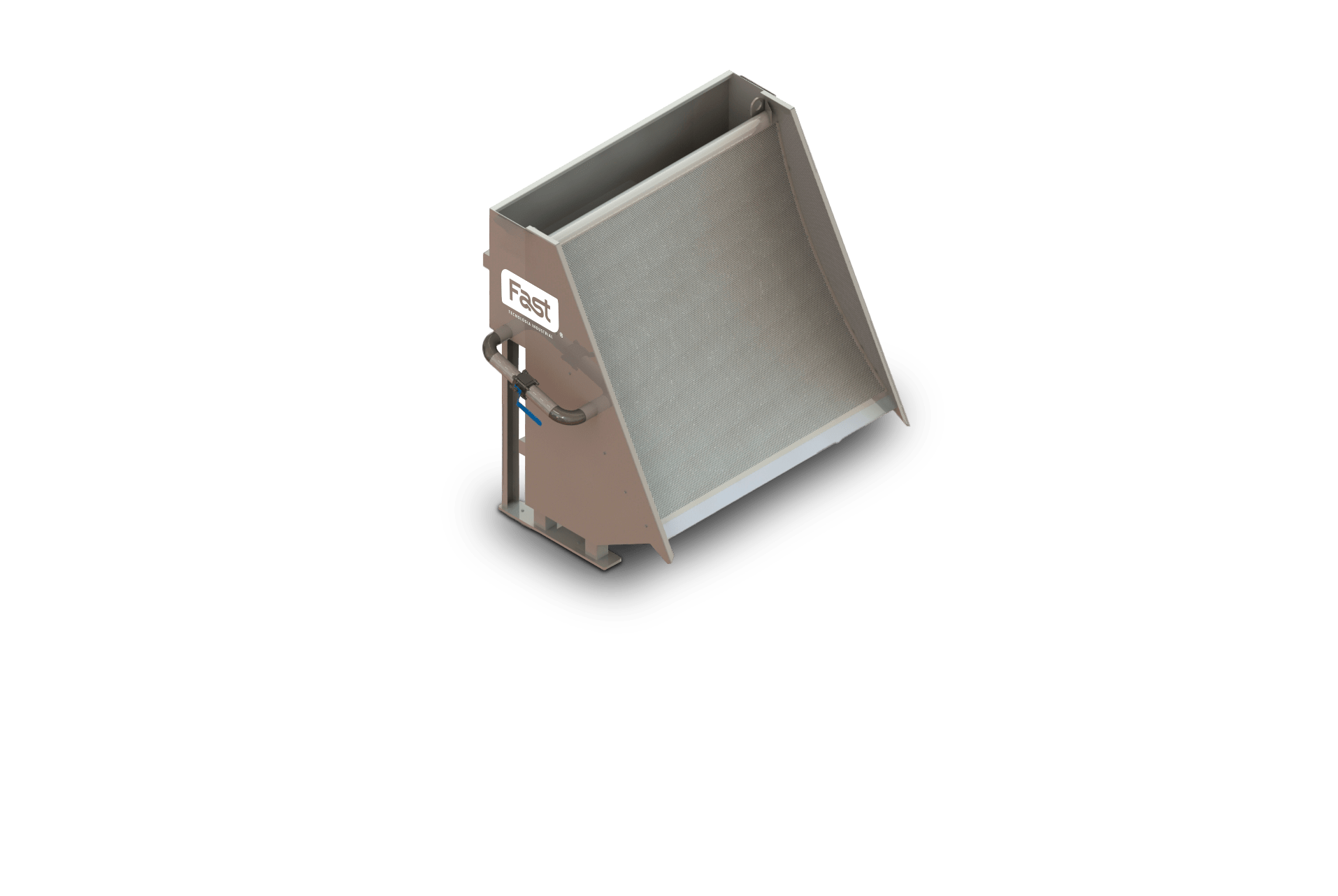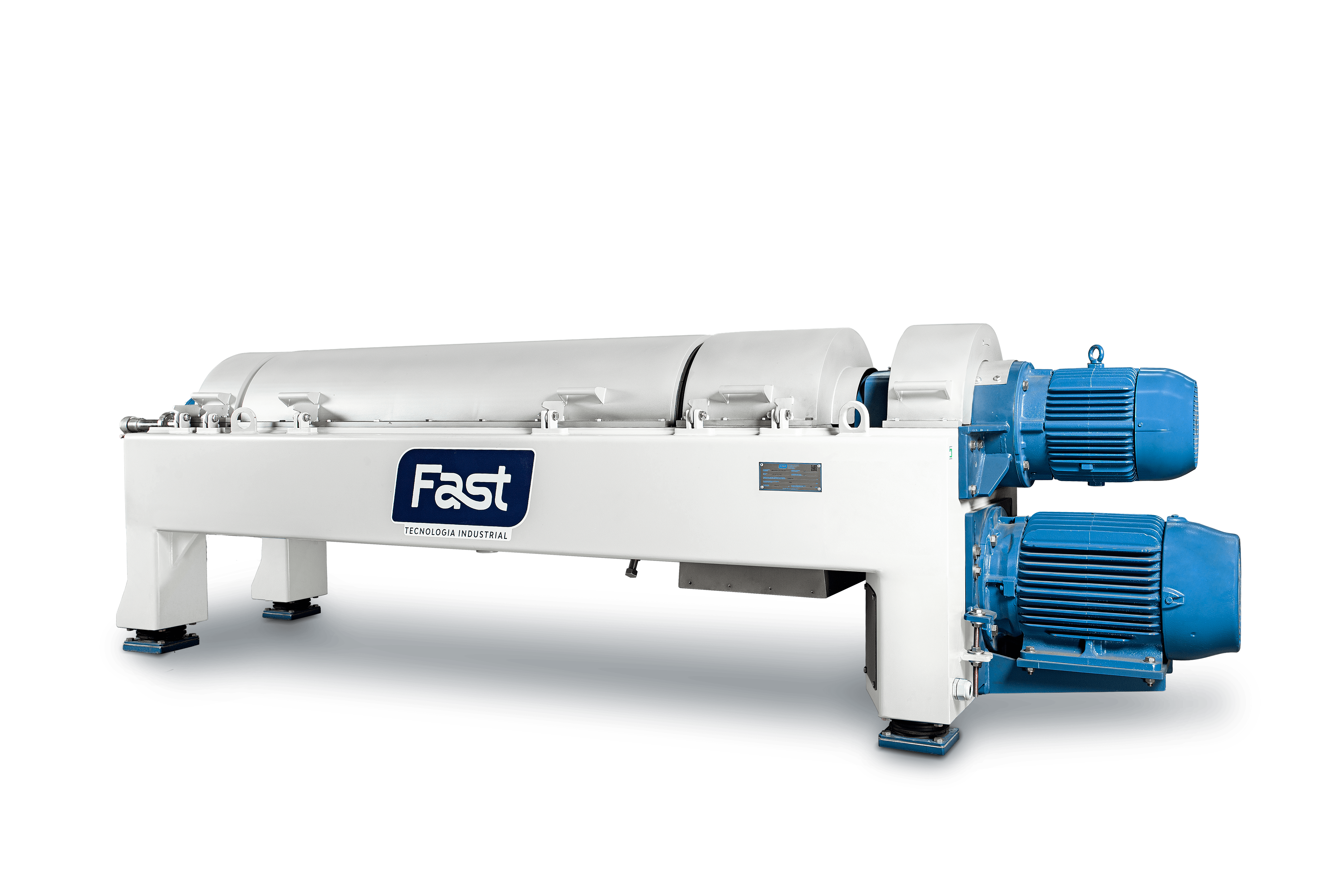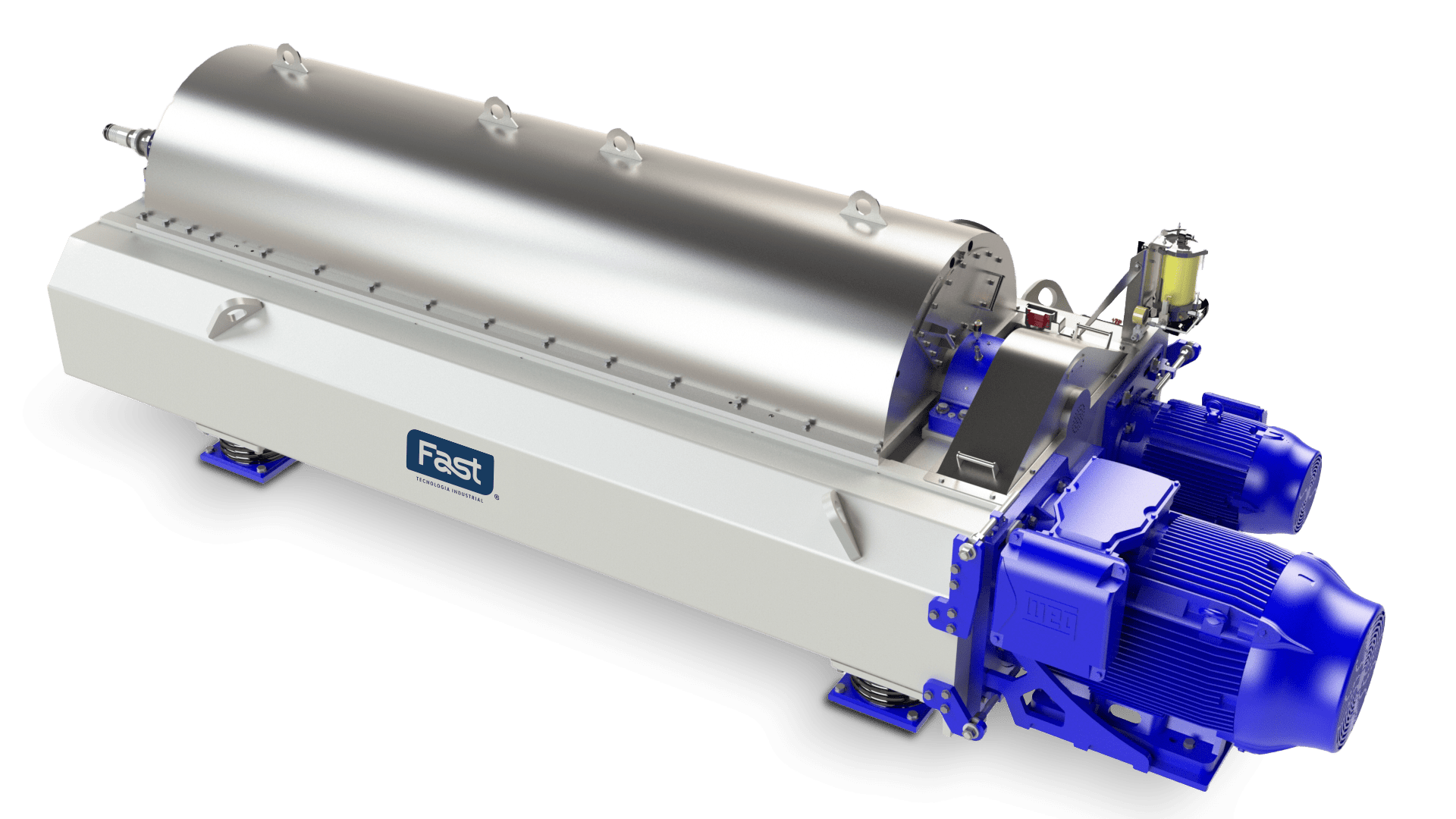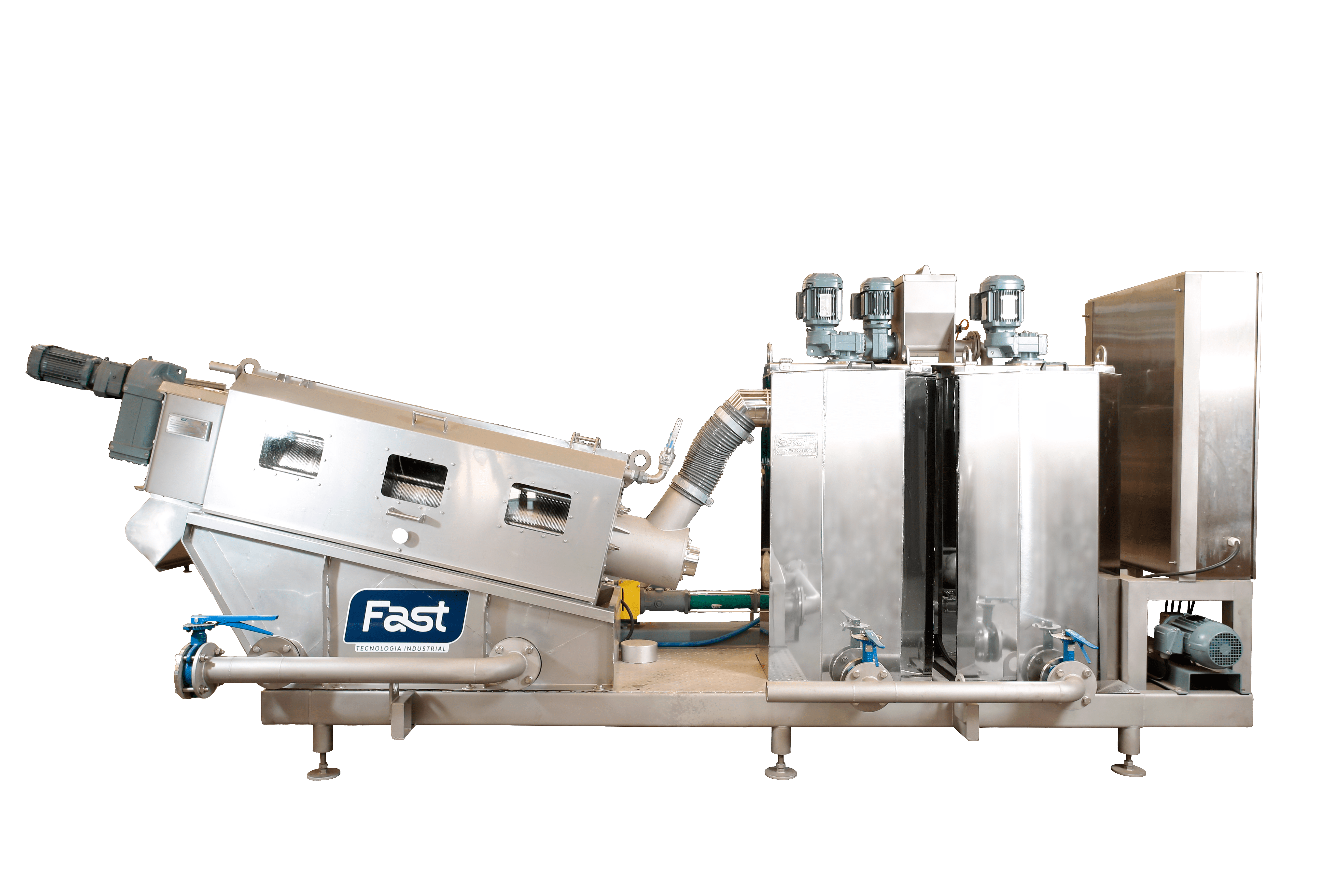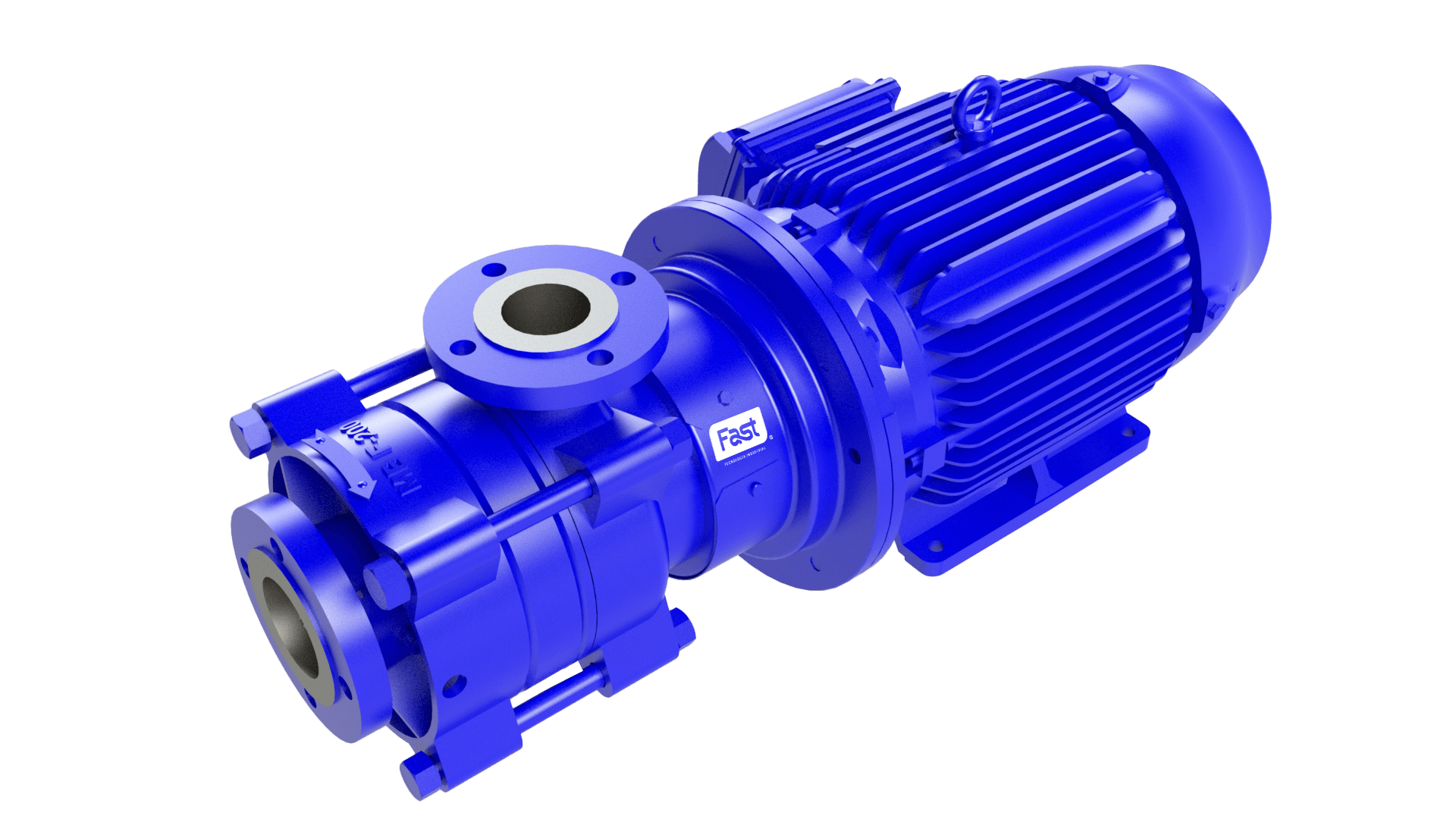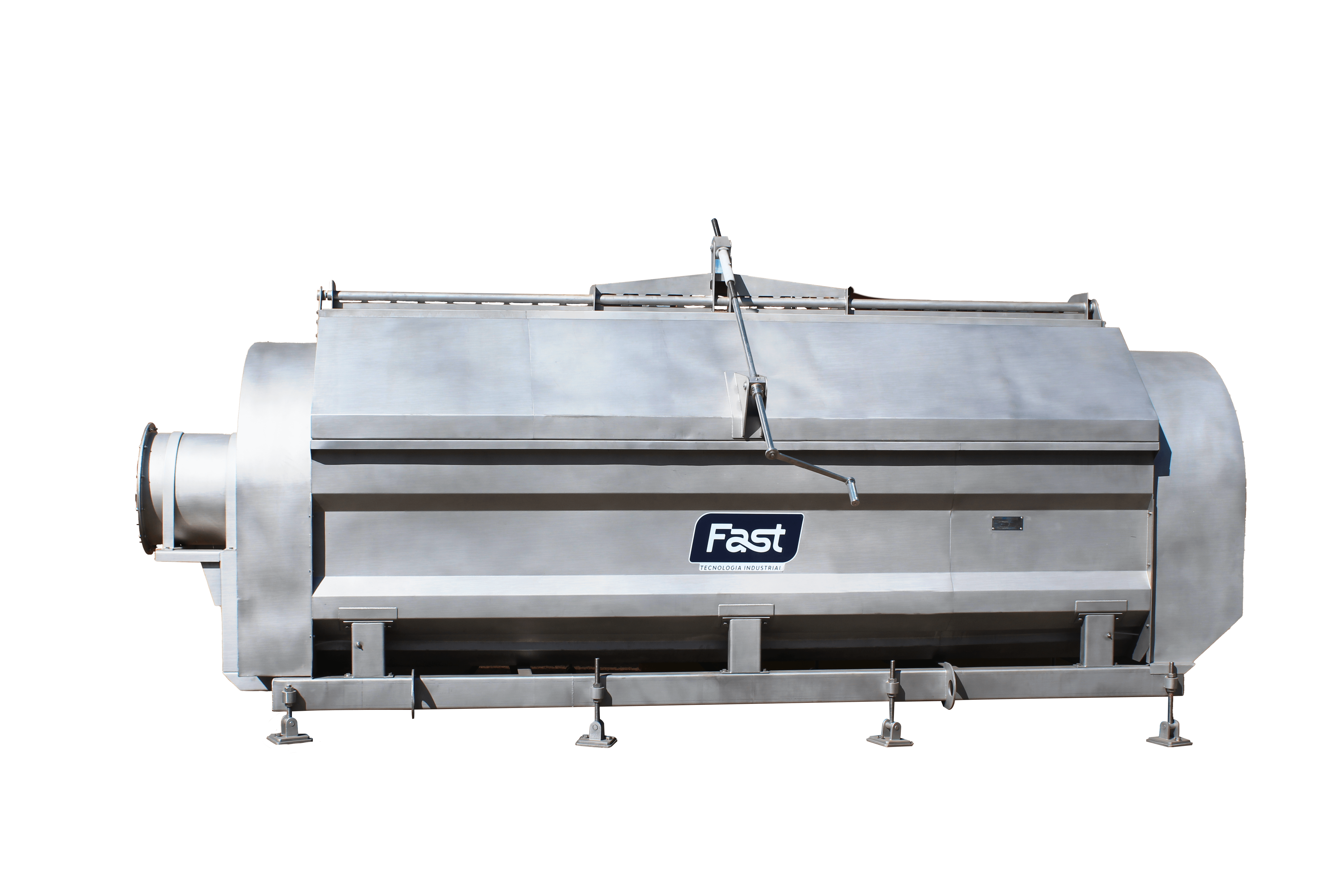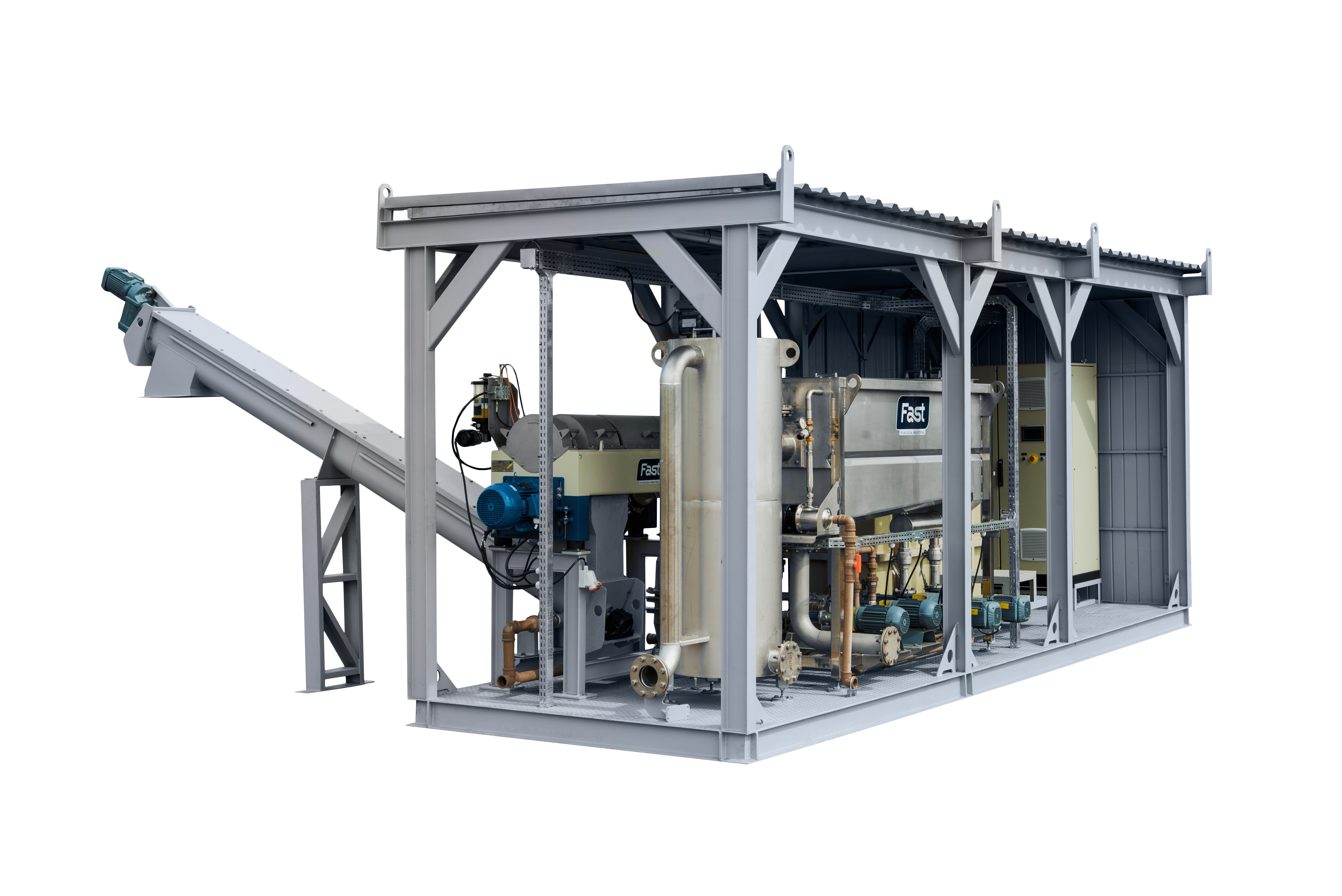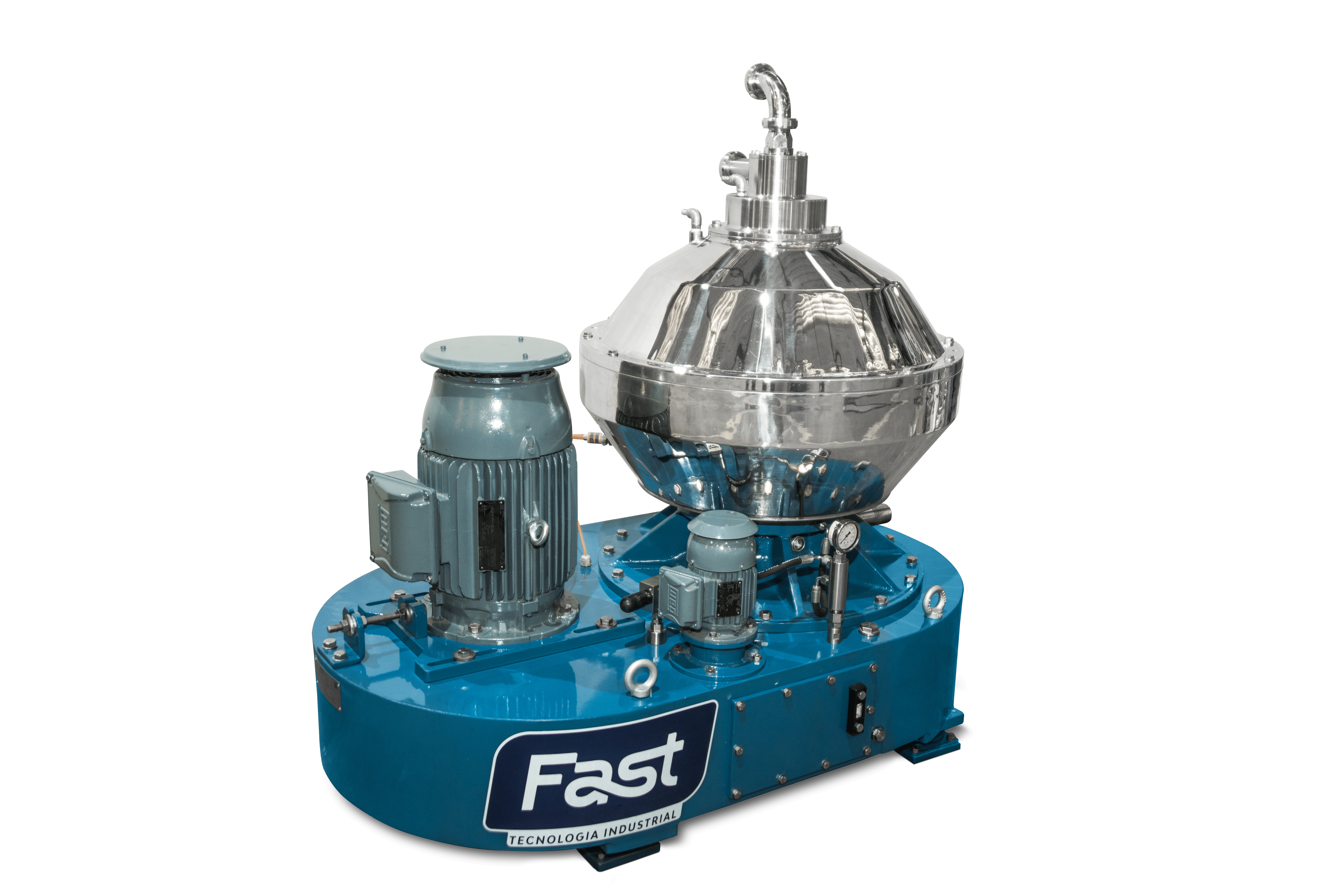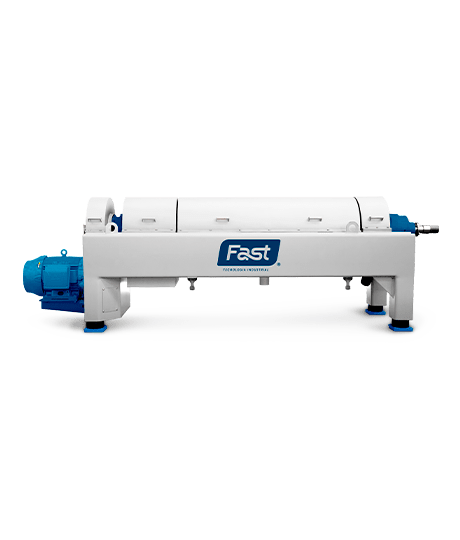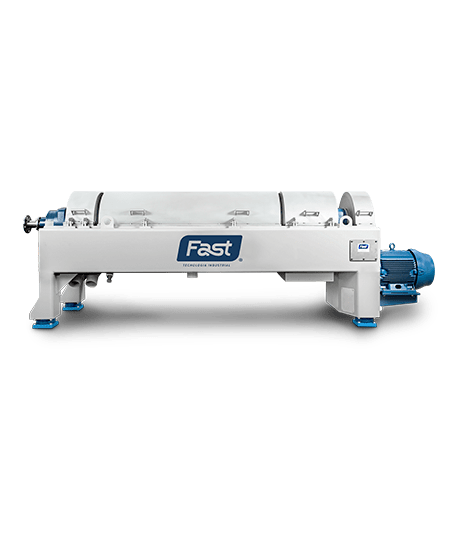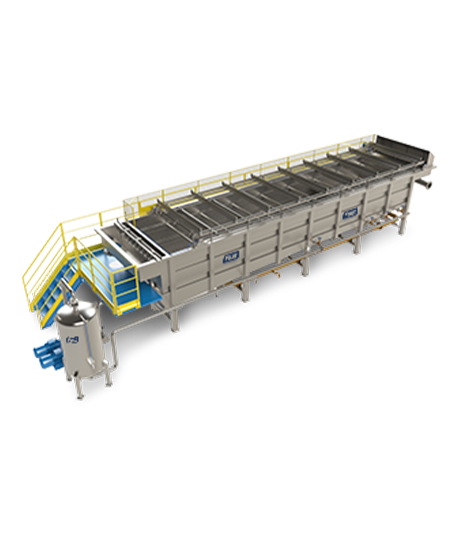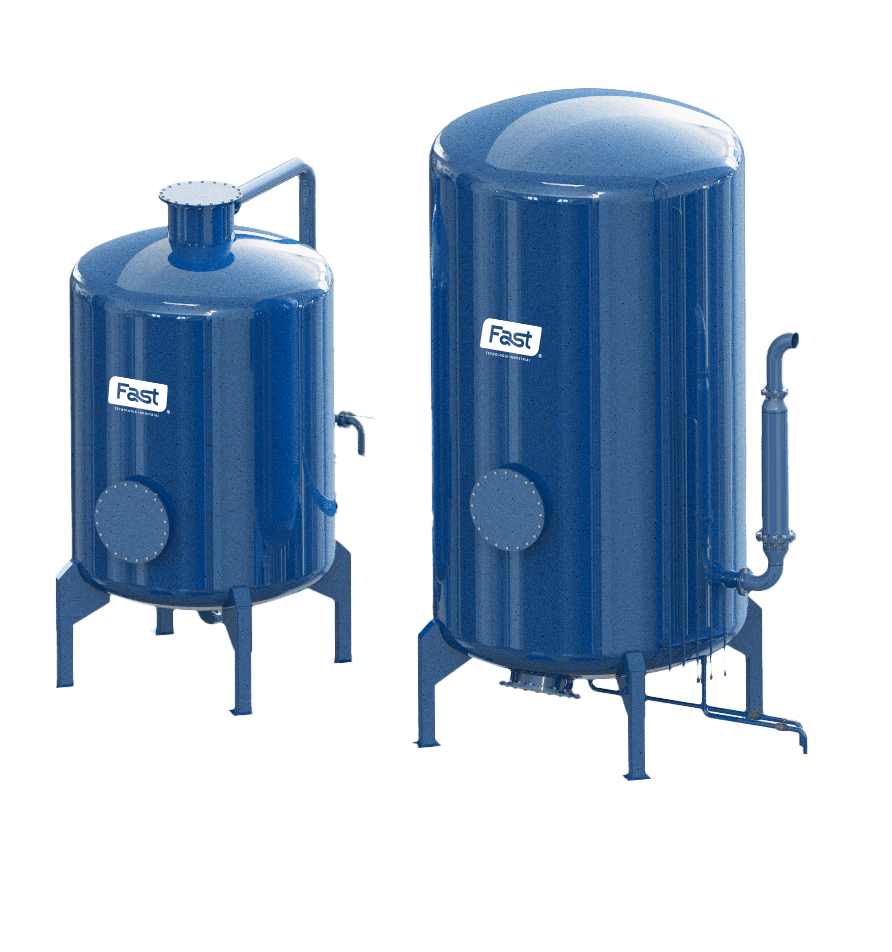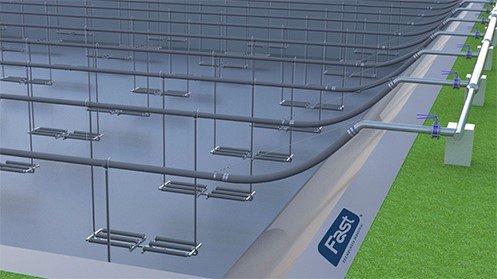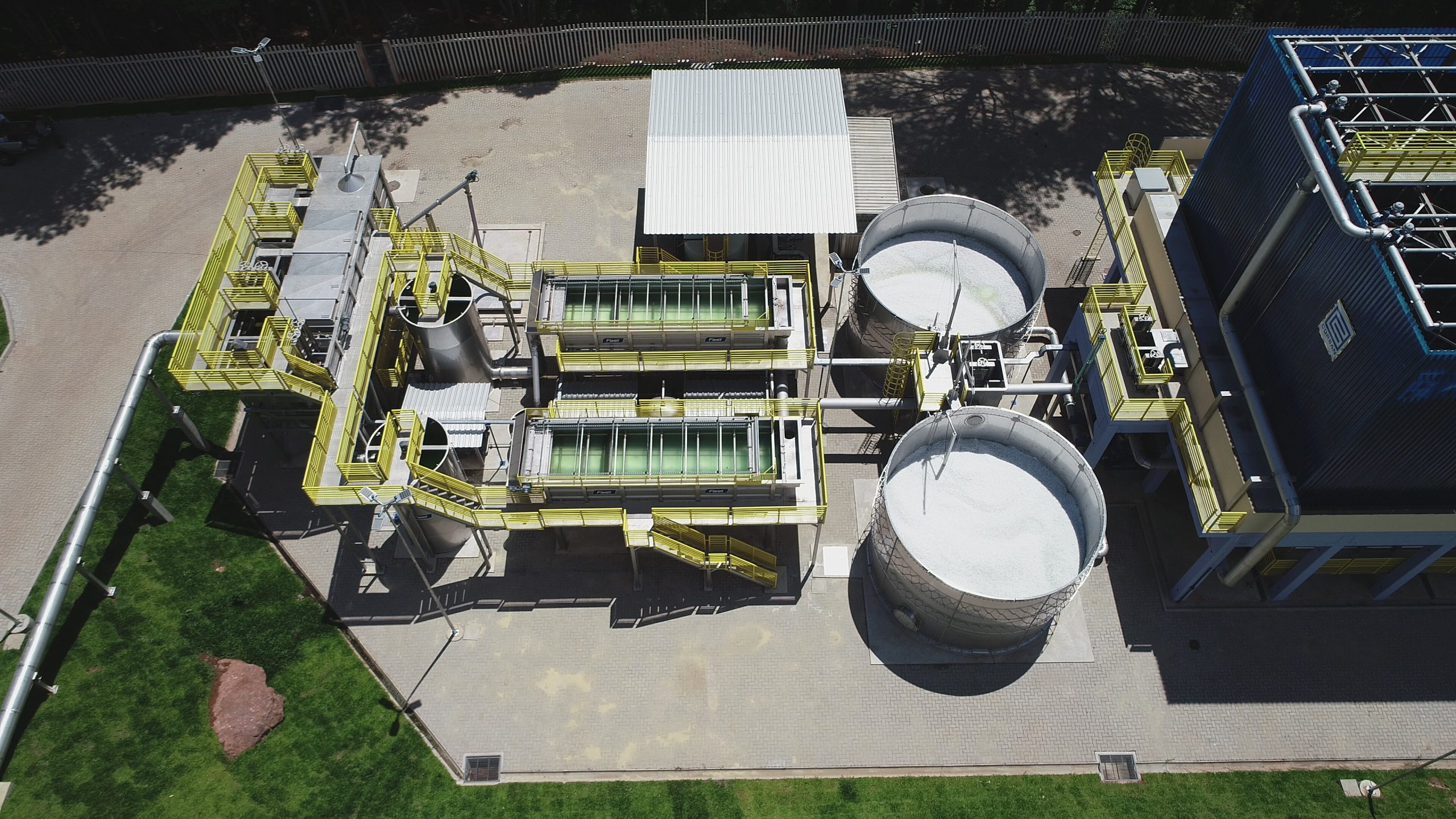[gtranslate]
- Company
- Solutions
- SanitationEquipaments
- Fast Drive Cetrifugal Tridecanter
- Tridecanter Centrifugal
- Fast Drive Centrifugal Decanter
- Decanter Centrifugal
- Hyperbolic Agitator
- Water Treatment Plant - ETA
- Compact Flotation Unit
- Polypropylene Tanks
- Modular Tanks
- Polymer Preparation System
- Scraper Bridge
- Automation and Electrical Panel
- Dortmund Decanter
- Surface Aerator
- Sludge thickener
- Screw Conveyor
- Static Sieve
- Screw Press
- Microbubble Pump
- Rotary Sieve
- Mobile Skid Treatment Unit
- Effluent Treatment Plant (ETE)
- Pressurized WTP
- Dissolved air floatation machine
- SlaughterhousesEquipaments
- Hydrolyzer
- Disc Dryer
- Gas Condenser
- Fast Drive Cetrifugal Tridecanter
- Flour Mill | MFF
- Tridecanter Centrifugal
- Fast Drive Centrifugal Decanter
- Decanter Centrifugal
- Fast Continuous Press | PCF
- Hyperbolic Agitator
- Fast Batch Digester | DBF
- Fast Continuous Digester | DCF
- Water Treatment Plant - ETA
- Fast Shredder | TRF
- Fast Lamella Pump | BLF
- Compact Flotation Unit
- Polypropylene Tanks
- Modular Tanks
- Polymer Preparation System
- Scraper Bridge
- Automation and Electrical Panel
- Surface Aerator
- Sludge thickener
- Static Sieve
- Screw Press
- Microbubble Pump
- Rotary Sieve
- Mobile Skid Treatment Unit
- Effluent Treatment Plant (ETE)
- Pressurized WTP
- Vertical Centrifuge
- Dissolved air floatation machine
- Palm OilEquipaments
- Fast Drive Cetrifugal Tridecanter
- Tridecanter Centrifugal
- Water Treatment Plant - ETA
- Oil Tank, Buffer Tank and Homogenization Tank
- Empty Bunch Dosing Screw
- desanding machine
- Centrifugal Pump
- Fruit Digester
- Automation and Electrical Panel
- Fruit Press
- Empty Bunch Chopper
- Empty Curl Press
- Effluent Treatment Plant (ETE)
- Dissolved air floatation machine
- Olive OilEquipaments
- Fast Drive EAF Centrifugal Decanter
- Olive Oil Tank
- EAF Centrifugal Decanter
- Mixer
- Olive Oil Filter
- Stone Separator
- Automation and Electrical Panel
- Fast 100 Monobloc Extractor
- EAF Vertical Centrifuge
- Leaf Eliminator
- Reception Hopper
- MiningEquipaments
- Fast Drive Cetrifugal Tridecanter
- Fast Drive Centrifugal Decanter
- Decanter Centrifugal
- Thickener
- Water Treatment Plant - ETA
- Polypropylene Tanks
- Automation and Electrical Panel
- Sludge thickener
- Screw Conveyor
- Static Sieve
- Mobile Skid Treatment Unit
- Effluent Treatment Plant (ETE)
- Dissolved air floatation machine
- Paper and PulpEquipaments
- Fast Drive Cetrifugal Tridecanter
- Tridecanter Centrifugal
- Fast Drive Centrifugal Decanter
- Decanter Centrifugal
- Hyperbolic Agitator
- Water Treatment Plant - ETA
- Polypropylene Tanks
- Polymer Preparation System
- Scraper Bridge
- Automation and Electrical Panel
- Surface Aerator
- Sludge thickener
- Screw Conveyor
- Static Sieve
- Screw Press
- Microbubble Pump
- Rotary Sieve
- Mobile Skid Treatment Unit
- Effluent Treatment Plant (ETE)
- Pressurized WTP
- Dissolved air floatation machine
- Fast RenderingEquipaments
- Hydrolyzer
- Disc Dryer
- Gas Condenser
- Flour Mill | MFF
- Tridecanter Centrifugal
- Decanter Centrifugal
- Fast Continuous Press | PCF
- Fast Batch Digester | DBF
- Fast Continuous Digester | DCF
- Fast Shredder | TRF
- Fast Lamella Pump | BLF
- Fast GrainEquipaments
- Fast Drive Cetrifugal Tridecanter
- Tridecanter Centrifugal
- Fast Drive Centrifugal Decanter
- Decanter Centrifugal
- Disc Dryer
- Water Treatment Plant - ETA
- Polypropylene Tanks
- Automation and Electrical Panel
- Static Sieve
- Effluent Treatment Plant (ETE)
- Pressurized WTP
- Vertical Centrifuge
- Dissolved air floatation machine
- DairyEquipaments
- Fast Drive Cetrifugal Tridecanter
- Tridecanter Centrifugal
- Fast Drive Centrifugal Decanter
- Decanter Centrifugal
- Hyperbolic Agitator
- Water Treatment Plant - ETA
- Compact Flotation Unit
- Polypropylene Tanks
- Polymer Preparation System
- Automation and Electrical Panel
- Sludge thickener
- Static Sieve
- Screw Press
- Microbubble Pump
- Rotary Sieve
- Mobile Skid Treatment Unit
- Effluent Treatment Plant (ETE)
- Pressurized WTP
- Vertical Centrifuge
- Dissolved air floatation machine
- BeveragesEquipaments
- Fast Drive Cetrifugal Tridecanter
- Tridecanter Centrifugal
- Fast Drive Centrifugal Decanter
- Decanter Centrifugal
- Hyperbolic Agitator
- Water Treatment Plant - ETA
- Compact Flotation Unit
- Polypropylene Tanks
- Polymer Preparation System
- Scraper Bridge
- Automation and Electrical Panel
- Sludge thickener
- Static Sieve
- Screw Press
- Microbubble Pump
- Rotary Sieve
- Mobile Skid Treatment Unit
- Effluent Treatment Plant (ETE)
- Pressurized WTP
- Vertical Centrifuge
- Dissolved air floatation machine
- AçaíEquipaments
- Fast Drive Cetrifugal Tridecanter
- Tridecanter Centrifugal
- Fast Drive Centrifugal Decanter
- Decanter Centrifugal
- Water Treatment Plant - ETA
- Automation and Electrical Panel
- Sludge thickener
- Static Sieve
- Screw Press
- Effluent Treatment Plant (ETE)
- Dissolved air floatation machine
- Avocado OilEquipaments
- Fast Drive EAF Centrifugal Decanter
- EAF Centrifugal Decanter
- Mixer
- Automation and Electrical Panel
- EAF Vertical Centrifuge
- Leaf Eliminator
- Reception Hopper
- Other ApplicationsEquipaments
- Fast Drive Cetrifugal Tridecanter
- Tridecanter Centrifugal
- Fast Drive Centrifugal Decanter
- Decanter Centrifugal
- Hyperbolic Agitator
- Water Treatment Plant - ETA
- Compact Flotation Unit
- Polypropylene Tanks
- Modular Tanks
- Polymer Preparation System
- Scraper Bridge
- Automation and Electrical Panel
- Dortmund Decanter
- Surface Aerator
- Sludge thickener
- Screw Conveyor
- Static Sieve
- Screw Press
- Microbubble Pump
- Rotary Sieve
- Mobile Skid Treatment Unit
- Effluent Treatment Plant (ETE)
- Pressurized WTP
- Vertical Centrifuge
- Dissolved air floatation machine
Segments and applicationsTechnological solutions for phase separation in the most diverse applicationsAll products
Oferecemos soluções completas em separação, desenvolvidas para maximizar a performance dos seus processos industriais. Seja qual for o desafio — separação sólido-líquido, clarificação ou concentração — temos o equipamento ideal para entregar eficiência, economia e confiabilidade
- Sanitation
- Estimates
- Cases
- Customers
- Blog
- Contact
- Careers
[gtranslate]
[gtranslate]







































